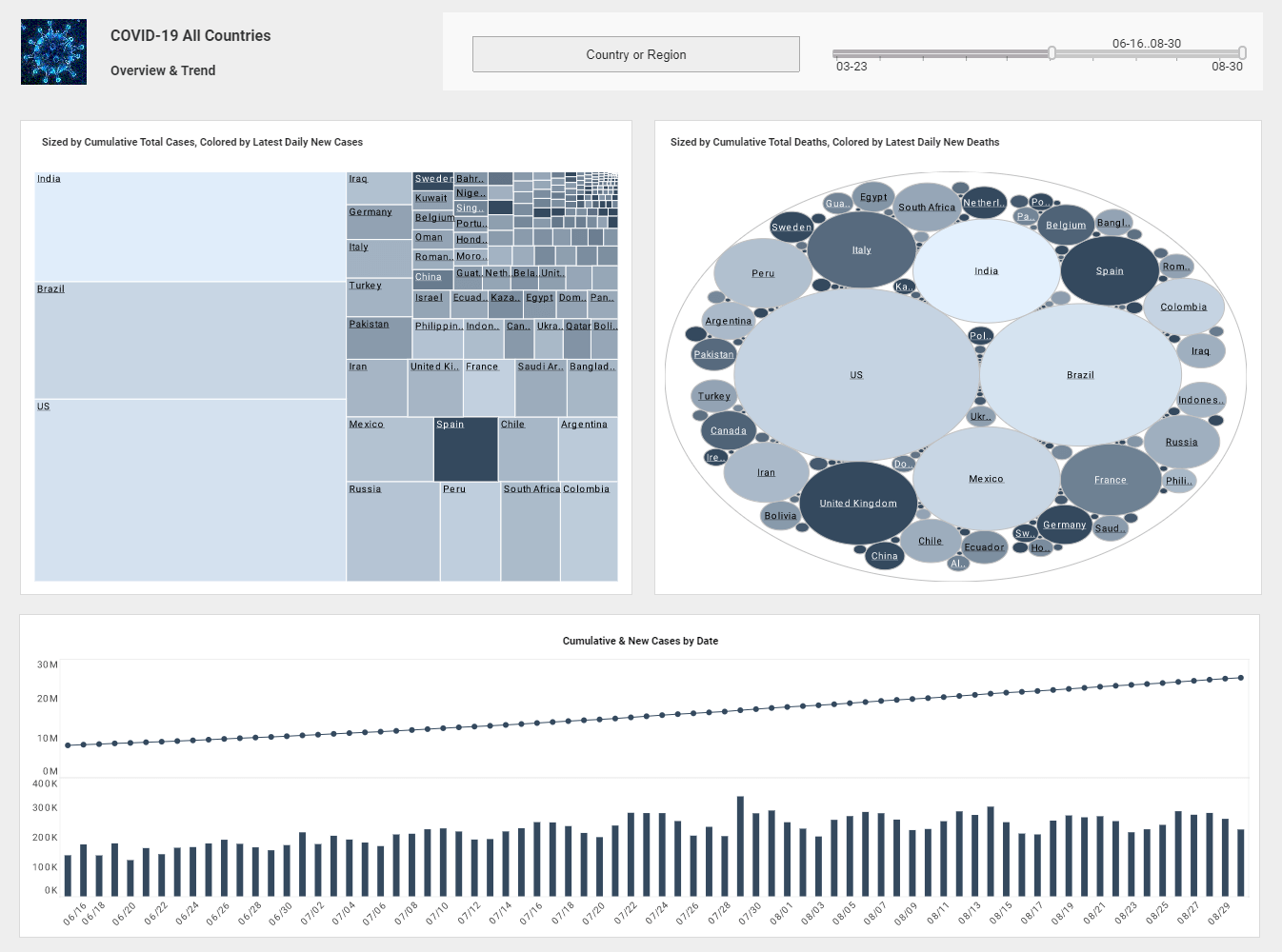InetSoft Webinar: Traditional Data Management and Business Intelligence Companies
This is the continuation of the transcript of a podcast hosted by InetSoft entitled "Advent of Big Data." The speaker is Mark Flaherty, CMO at InetSoft.
What does this shift towards big data tools mean for traditional data management and business intelligence companies? Fairly obviously when you talk about anything new like big data, the question is, is this going to replace traditional data management tools, and the answer is gosh, no. This is true for two good reasons.
First of all, there is still a lot of information in most corporations’ databases on which they are still not properly reporting and extracting all the insights and analysis from. That is going to continue to be a source of growth and revenue for decades to come. Next, not all databases need the big data tools. Those are new kinds of tools, and there are things that they do well. But there are other things they do less well.
The traditional database tools are well integrated and easy to use and well understood. So those are going to hang around for that reason, as well. I think the other thing, though, is you need to use big data tools when other tools don’t work. It’s the thing you use when the stuff you already have isn’t capable of extracting the insight.
In other words, it shouldn’t become the default. You shouldn’t be throwing big data tools at every problem because it isn’t perfect. It isn’t suited for every problem. So traditional database and business intelligence tools are going to be not just with us. They are going to be significant larger than big data for years, maybe even decades to come.
| #1 Ranking: Read how InetSoft was rated #1 for user adoption in G2's user survey-based index | Read More |
What does the accessibility of all that data mean for the way that companies are currently doing business? I am tempted to spend 43 minutes talking about all the things you can do with big data, but I actually think that’s the wrong way of approaching it. Let’s take it a different way. It’s about understanding your customer better. At the end of the day, that’s what big data is best at.
It’s providing that level of granular insight into the detailed behavior of millions of customers over time. That’s the stuff that it is good at. In terms of managing a classic supply chain or an accounting system, that is not where big data is the shining star. So it’s all about understanding and getting close to your customer. If it’s that sort of behavior you’re trying to drive, then big data projects make sense. But for the traditional business intelligence projects that big corporations do, you probably don’t need it.
This kind of technology will benefit the corporations using it clearly, but also their customers by virtue of them being able to access more information better and serve their customers better. They will be able to give us what we want when we want it. And it will be more insightful. To use the example that I always use is that sometimes I am reached out to from my bank who offers me services that I am not interested in, I’ve never used, or I am not about to use.
That’s not a great use of the bank’s resources, and it’s not a great use of my time either. I imagine them being able to look at my data and just provide me the services, the features that I want and that I need. That’s a win-win for both corporations and their customers. Predictions are that over 90% of the Fortune 500 is going to be having at least some kind of pilot project by the end of this year.
| Previous: Advent of Big Data |


